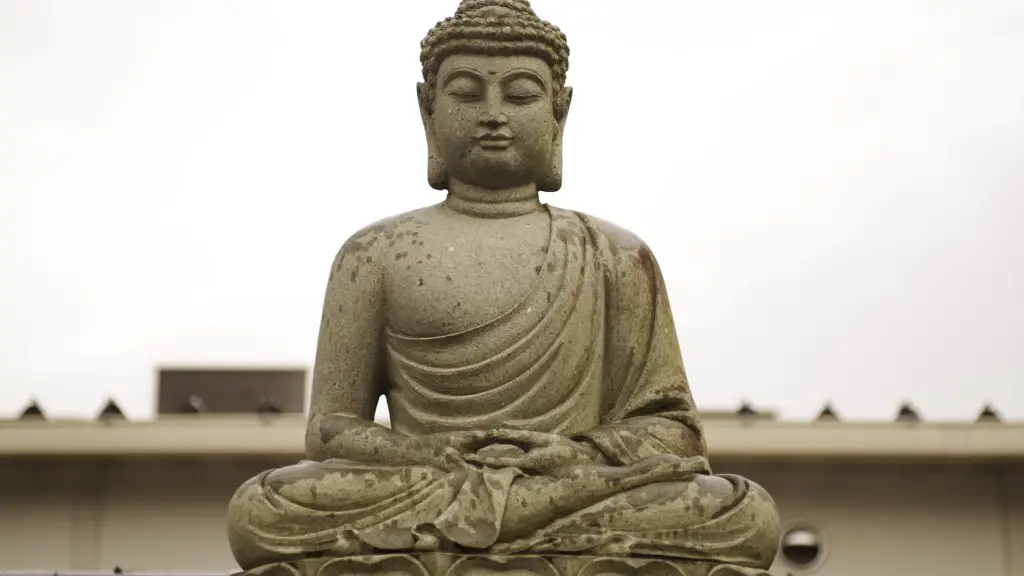The concept of free will is a central belief in Christianity, involving the freedom to make moral choices and to accept God’s ultimate authority and plan. From as early as the days of St. Augustine, Christian theologians have tussled with the compatibility of free will and predestination—the idea that some people are predetermined from birth to do good or evil. But what is free will and how does it fit into Christianity?
Free will is the ability to choose between different possible courses of action, allowing for a sense of moral responsibility in the choices one makes. While the ultimate outcome may be predetermined, our decisions and their consequences are initiated by our own will and could, in theory, have gone a different way. In this respect, free will begins to emerge as a metaphor for taking responsibility for one’s destiny, and empowering oneself to make choices which are compatible with the wishes of your Maker.
In Christianity, free will encapsulates the idea of God’s grace. As a result, aside from assuming responsibility for one’s decisions, followers of the religion are aware that they are dependent on God for their ability to think and to act freely. To understand this, reference can be made to Ephesians 2:8-10 “For by grace you have been saved through faith. And this is not your own doing; it is the gift of God, not a result of works, so that no one may boast.” Additionally, by being conscious of the fact that this free will was given to them, as part of God’s divine plan, Christians feel a sense of moral responsibility and obligation to behave in a way that is pleasing to God.
The topic of free will and predestination remains largely unresolved, not least because the implications of either theory have far-reaching and controversial implications. Indeed, some philosophers have argued that our sense of self-agency is an illusion in the face of divine Providence; that God’s utter power and omniscience extends beyond human comprehension. Others suggest that to believe in predestination is to deny that we have any influence over God’s ultimate plan.
Despite the unresolved conflict, free will remains an important part of being a Christian. In essence, it is the ability to freely choose to obey the will of God, enhancing our awareness of the connection between our own free will and the power of the Holy Spirit. Ultimately, free will contributes to the harmony between each individual and God, ensuring that people remain mindful of the importance of each individual decision, and how it can shape not only the lives of ourselves and others, but our relationship to God himself.
Psychology And Free Will In Christianity
Much of the theological debate surrounding free will in Christianity focuses on philosophical ideas of determinism and human responsibility. However, psychology can provide further insights into the concept of free will in Christianity and how it is experienced in followers of the religion.
Generally speaking, the concept of free will is commonly accepted in psychology to understand how individuals interact with their environment and make meaningful choices. By being aware of the limitations of free will, individuals can exercise control over their environment, making choices that align with the need to understand and accept their relationships with the people and situations around them. Moreover, free will can also be seen as a means for individuals to make decisions that honor their personal convictions and identity, allowing them to define their own lives.
In Christianity, this understanding of free will is grounded in the idea that one has a degree of responsibility over the direction of their life, according to the will of God. This sense of responsibility is thought to strengthen the individual’s belief in and connection to God, while simultaneously challenging them to exercise good judgment in their decisions. Additionally, through interpreting the Bible and their relationship to God and understanding his wishes, individuals can develop a sense that their decisions and actions will have an effect on others’ lives. As a result, the concept of free will and its use in Christianity can be seen as a way of developing one’s moral compass and helping to serve the greater good.
Free Will And The Debate On Predestination In Christianity
At the heart of the debate surrounding free will in Christianity is the topic of predestination. This suggests that certain people are predetermined by God for either good or evil purposes. Predestination is a central consideration for those discussing free will in Christianity as it challenges the traditional notion that humans have complete autonomy to make choices by themselves.
Generally speaking, those who argue in favor of free will, reference biblical passages such as Romans 8:29 which states: “For those whom he foreknew he also predestined to be conformed to the image of his Son, in order that he might be the firstborn among many brothers.” This suggests that while God has made plans for us, we still have the potential to be individually responsible for our own actions and decisions.
On the other hand, predestinarians claim that free will does not exist as, being omnipotent, God is also omniscient, leaving no space for free will to exist as God knows what will happen. This inevitably raises the question of responsibility as it seems to suggest that man’s choices are predetermined, eliminating individual responsibility.
Though there is no definitive answer to this complex theological debate, it is evident that free will remains an important concept in Christianity, despite the potential implications of predestination theory. Whatever position is taken, it is clear that the concept of free will allows an individual to remain mindful of God’s wish to exercise responsibility, while at the same time granting autonomy to make decisions according to an individual’s belief in God.
Moral Understanding And The Significance Of Free Will In Christianity
At its core, free will is central to Christian ethics as it encourages people to seek out moral knowledge in order to make informed decisions about their lives. This is partly a result of the understanding that the power to make choices is a gift from God, and provides insight into God’s grace. Ultimately, this developing understanding of free will offers an emotional and spiritual guidance to people, particularly as they grapple with difficult personal decisions and moral dilemmas.
An example of this can be seen when a moral dilemma arises and a person is presented with the option of doing something wrong despite the potential consequences. In this situation, a person has the ability to use their free will in order to make the right choice, or to go against their understanding of right and wrong. It is believed that God’s grace can offer support in this moment, allowing people to make decisions not just with their own sense of morality, but also with a sense of faith in God’s ultimate power and judgment.
It is through this moral understanding that the concept of free will in Christianity has its greatest significance. By being aware of the power of free will and its ability to create personal responsibility, people become aware of the importance of the individual choices they make, and how these choices can affect their relationship with God. Ultimately, free will offers an emotional recognition of the mystical process of sanctification, as proclaimed in Jeremiah 33:13: “When I restore the fortunes of my people, then let them recite my praises.”
The Impact Of The Physical World On Free Will In Christianity
The relevance of free will in Christianity is not only spiritual, it is also physical. This means that people’s emotional and physical wellbeing are both factors to be considered when making choices. As an example, in situations of addiction, a person’s physical health may be so deteriorated that there is a disconnect between their sense of will and the choices they make. In these cases, it is important to consider that while addiction can disrupt a person’s understanding of their own autonomy, God’s grace and mercy remain available as an additional source of strength and support. Additionally, by recognizing the power of the influence of the physical world, people can make decisions which are more balanced and considerate of both the physical and spiritual needs of an individual.
Belief in free will in Christianity can also be seen as a form of optimism. Since the faith does not specifically prescribe a specific ‘code of behavior’, this allows for people to accept their imperfections, work on spiritual growth, and freely make decisions according to their understanding of what is moral and right. This is part of an optimistic outlook for Christians, allowing for an expectation that if a situation does not turn out as expected, then another opportunity will be provided. Finally, this hope that life can be lived with a sense of joy, in spite of the inevitable imperfections, echoes the idea of free will in Christianity—that we can make our own decisions, yet have faith that they are part of a plan that God knows and approves of
The Possibility Of Rewriting Futures Through Free Will In Christianity
The concept of free will in Christianity also holds a promise of transformation, as it suggests that with the right choice, one can change the future in a positive way. In Christianity, this is illustrated by the examples of persons such as Mary Magdalene, who is seen as a strong example of someone who acted with faith and was eventually rewarded for her efforts. This proves that free will has the power to affect and rewrite a person’s future, provided that faith, hope and hard work remain a steady foundation. This is in line with the teaching of the Bible that suggests that people should not be limited by their past, but rather should strive to use the power of free will to shape their present and future in a positive way.
Ultimately, free will in Christianity is a powerful concept that upholds the need for personal responsibility and connection with God. This allows people to approach difficult circumstances and to make the right decisions by using their inner understanding of the will of God and being conscious of how their decisions may affect the lives of both themselves and others. While free will is an important tool, it is important to remember that we must accept the fact that in the end, it is all part of God’s ultimate plan.
The Impact Of Technology On Free Will In Christianity
In a world increasingly dominated by technology, faith in free will in Christianity is becoming ever more important. Though technology has allowed for progress in a variety of areas, it has also restricted some aspects of free will; this might involve the discovery of genetic coding, the data-driven decisions of algorithms, and the technologies of artificial intelligence.
While it is true that modern technology has decreased our freedom to make decisions and our ability to control our destiny, there is still a possibility that technology can be employed as a force for good. Technology can be used to give believers in the power of free will a platform to make a measurable impact on their lives and that of the entire world—as long as it is applied in an ethical manner, and with a sense of responsibility.
From this perspective, free will in Christianity can also be seen for its potential to bridge the gap between the physical world and the spiritual. It can also be seen as a form of empowerment, enabling individuals to make moral choices in the face of life’s many challenges, and acknowledge the importance of its proper exercise in order to achieve inner peace.

